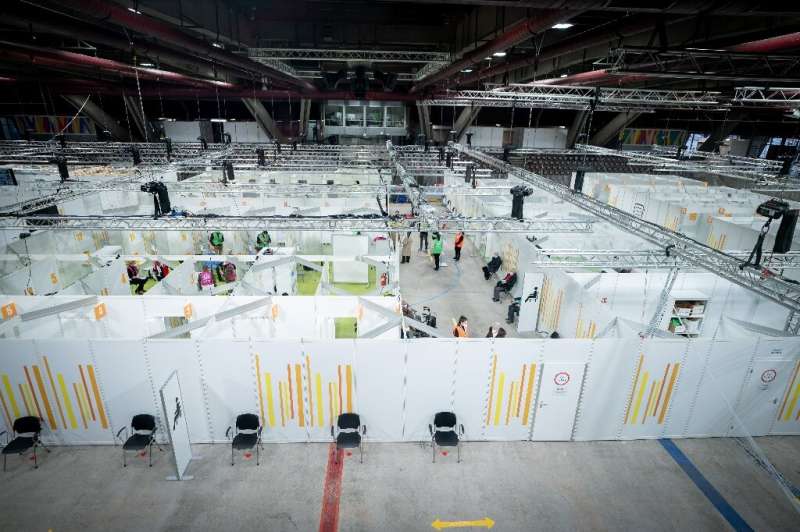Germany mulls tighter shutdown as virus variants fuel fears


Chancellor Angela Merkel and leaders of Germany’s 16 states are expected Tuesday to extend and tighten a partial lockdown beyond January, as fears grow over virus variant strains believed to be more contagious.
Draft measures seen by AFP ahead of the emergency talks include prolonging current restrictions until at least mid-February, requiring medical masks on public transport and in shops, and increasing pressure on employers to allow staff to work from home where possible.
Germany shuttered restaurants, leisure and sporting facilities in November, then expanded the shutdown in mid-December to include schools and most shops to halt runaway growth in new coronavirus infections.
The measures ordered until the end of January have brought about a “flattening of the infections curve”, said Merkel’s spokesman Steffen Seibert, noting also that the number of patients in intensive care had also fallen slightly.
“This trend is cautiously positive, he said, and an achievement of the restrictions of the last weeks.
“But it only brings us to the point where we still have a long way to go before we can say we have the infections under control.”
Virus variants first seen in Britain and South Africa also posed major risks to whether the falling infections trend could be sustained, added Seibert.

The crisis talks between Merkel and state premiers were brought forward by a week because of the virus variants.
“It is a risk that responsible politicians must take into account—sooner rather than later,” he added.
Work from home call
Germany survived the first wave of the coronavirus pandemic relatively well, but a second wave hit Europe’s biggest economy hard.
New infections have soared far above the 50 per 100,000 people threshold set by the government. And just last Thursday, the country saw a new high in daily deaths of 1,244.
On Tuesday, daily deaths reached 989 though health authorities said they might have been inflated after a lag in weekend reporting. More than 11,000 new cases were recorded.
Seibert noted Monday that the incidence rate was still at over 130 per 100,000, and that Germany “must more quickly” bring that down to 50.

President Frank-Walter Steinmeier last week issued a joint appeal with union and employer federation representatives, urging firms to have staff work from home “whenever possible”.
More could be done to keep non-essential workers out of the office and off public transport, they said.
Experts have been alarmed by data showing that while a first shutdown last spring had led to a sharp drop of 40 percent in mobility, this winter, far more people appear to be on the move.
Disease control agency Robert Koch Institute and Berlin’s Humboldt University have found from data collected from mobile phone signals that last Wednesday, the mobility of Germans was only 15 percent below that from a year ago.
RKI chief Lothar Wieler has pleaded for rigorous implementation of curbs that have already been ordered, saying that there were too many exceptions being offered.
In northern Germany, authorities were planning to take more drastic measures against people who breach quarantine rules.
Source: Read Full Article